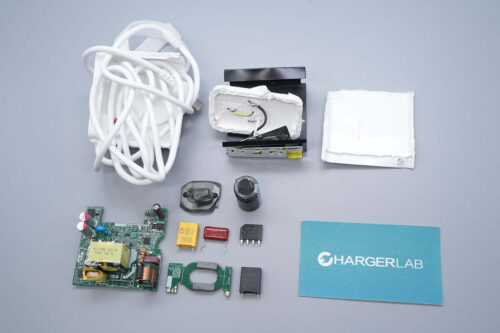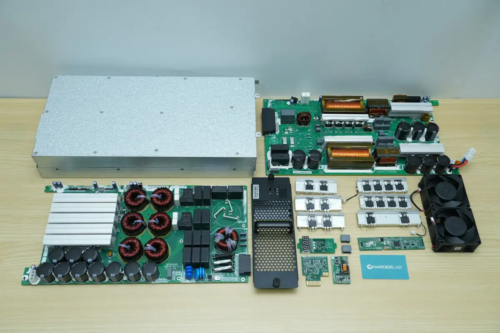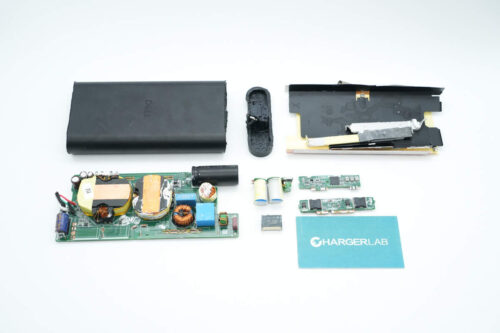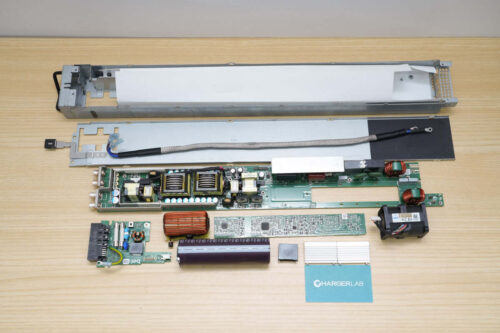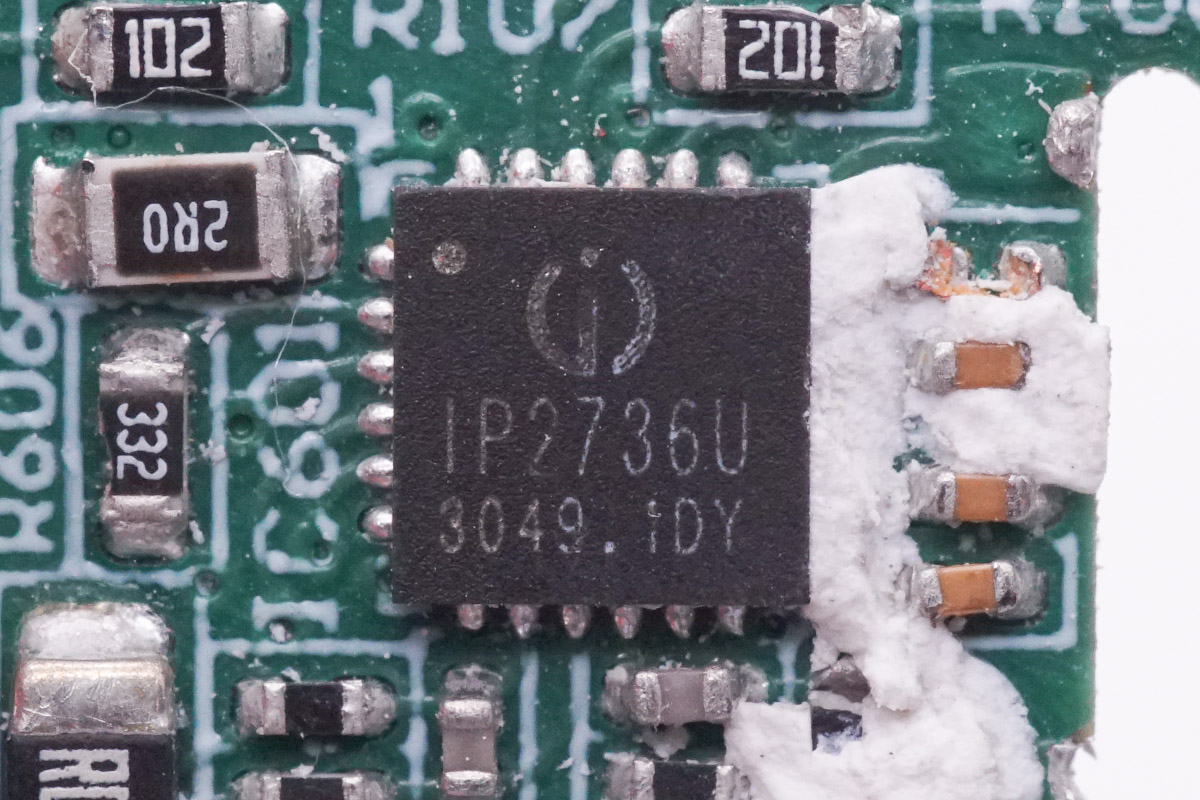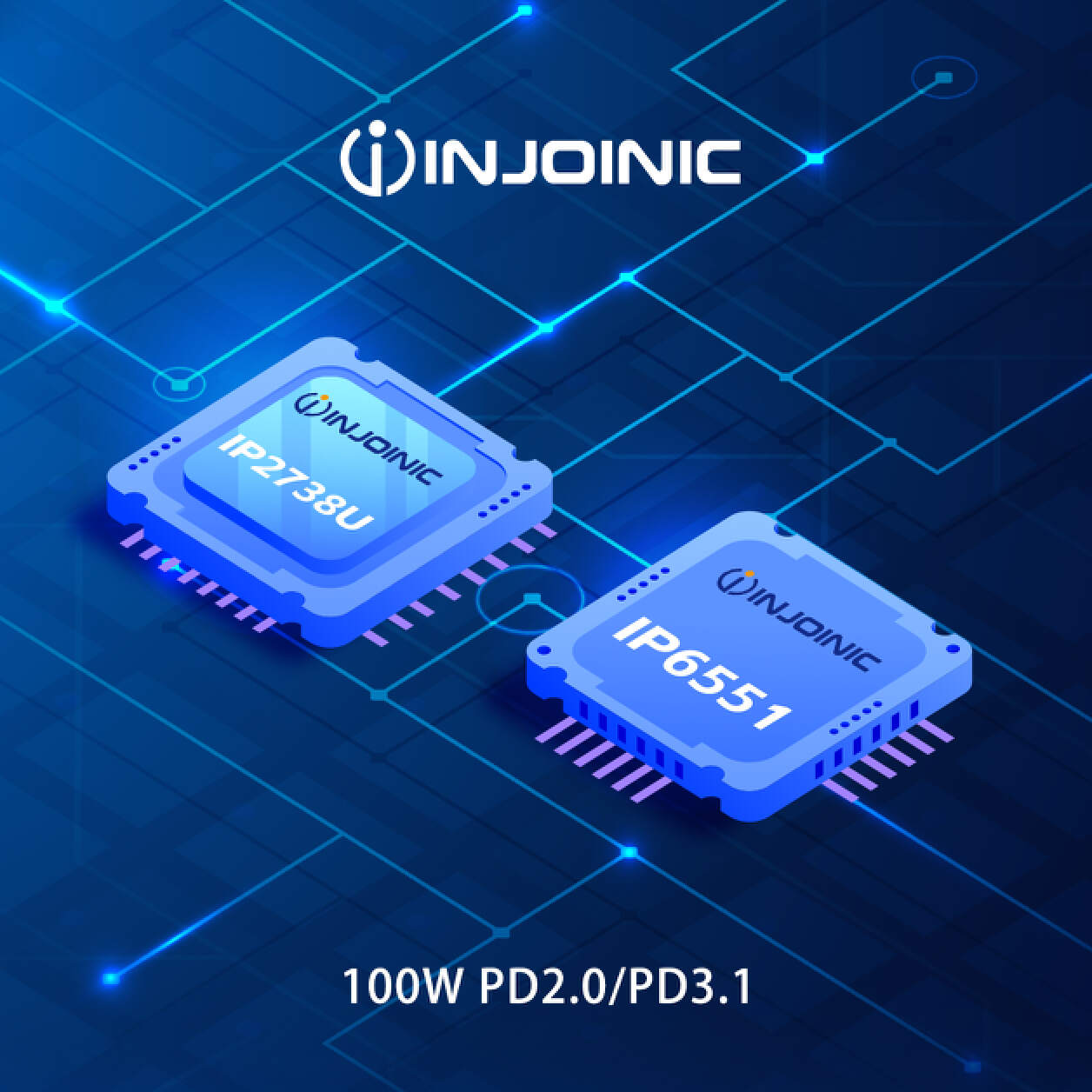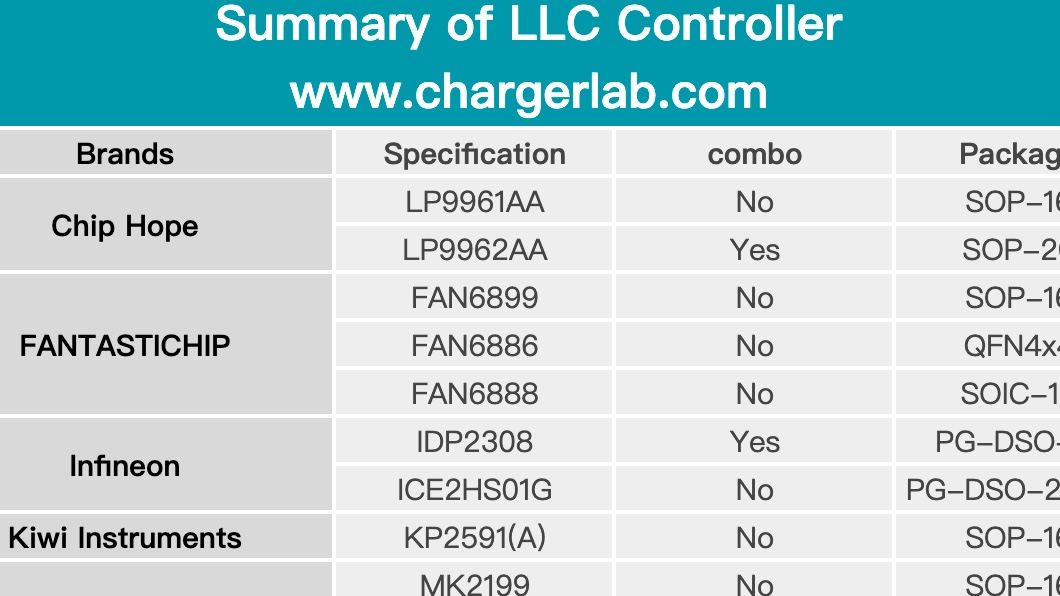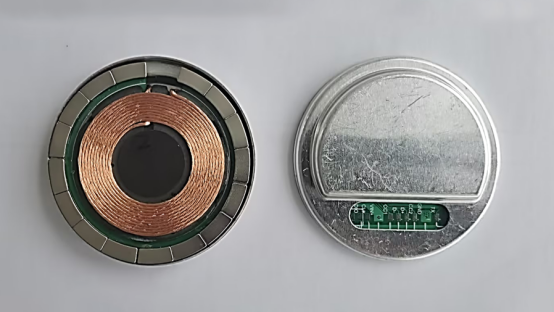Introduction
The USB PD 3.1 standard is the latest version of USB Power Delivery, which provides higher power transmission capabilities and more flexible power management functions. USB PD 3.1 supports a power of up to 240W, enabling it to meet the needs of more devices, including laptops, monitors, power banks, etc.
USB PD 3.1 supports a maximum voltage of 48V, so it can achieve higher power with lower current, thereby reducing resistance loss and improving power transmission efficiency. High-voltage protocol chips are designed based on supporting USB PD 3.1. They can stably provide and manage 48V voltage and are a key component in providing power transmission solutions for devices with higher power requirements. They ensure system reliability and safety while providing efficient energy transmission.
PD3.1 48V Fast Charging Protocol Chip Summary
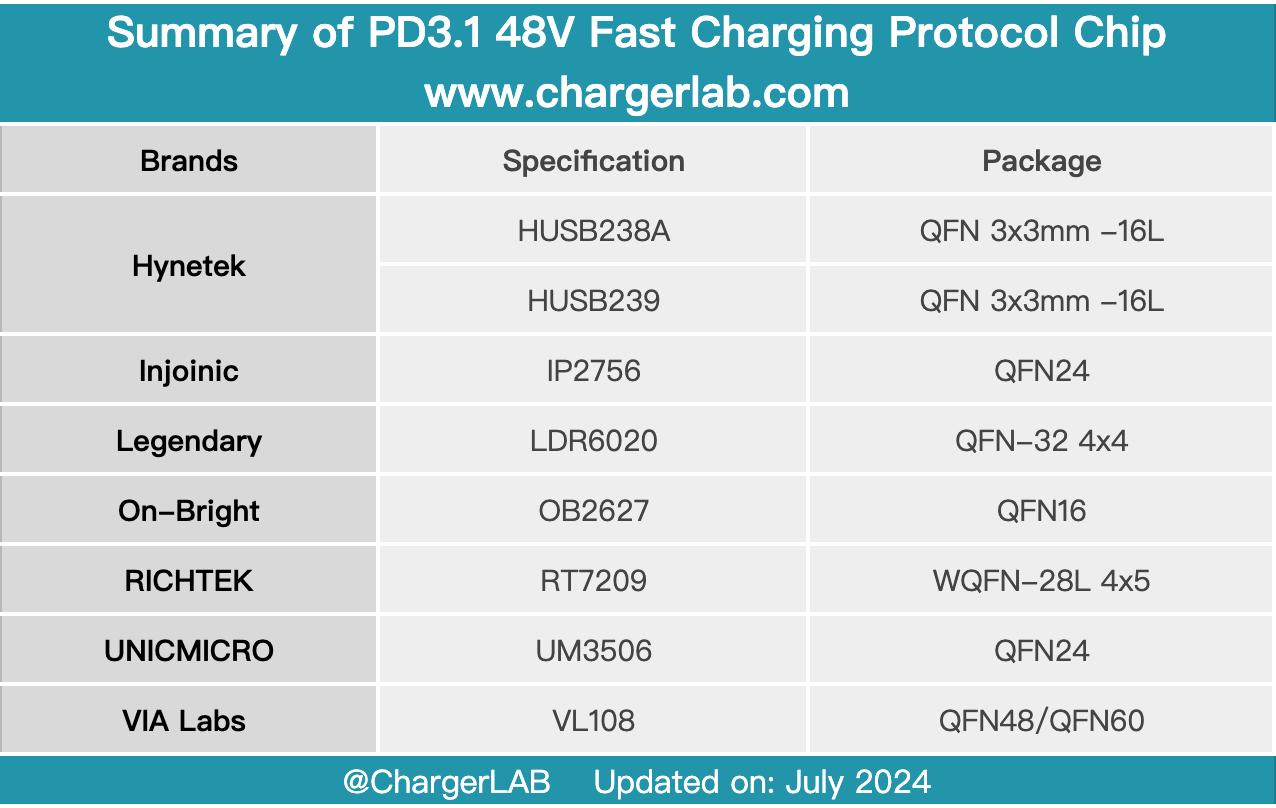
The following manufacturers are listed alphabetically.
Hynetek
Hynetek HUSB238A
HUSB238A is a highly integrated USB-C chip. The controller integrates CC logic and USB PD protocol, supports Type-C V2.1 & USB PD3.1 standards, PPS 20mV and AVS 200mV voltage regulation, and the rated power can reach 240W.
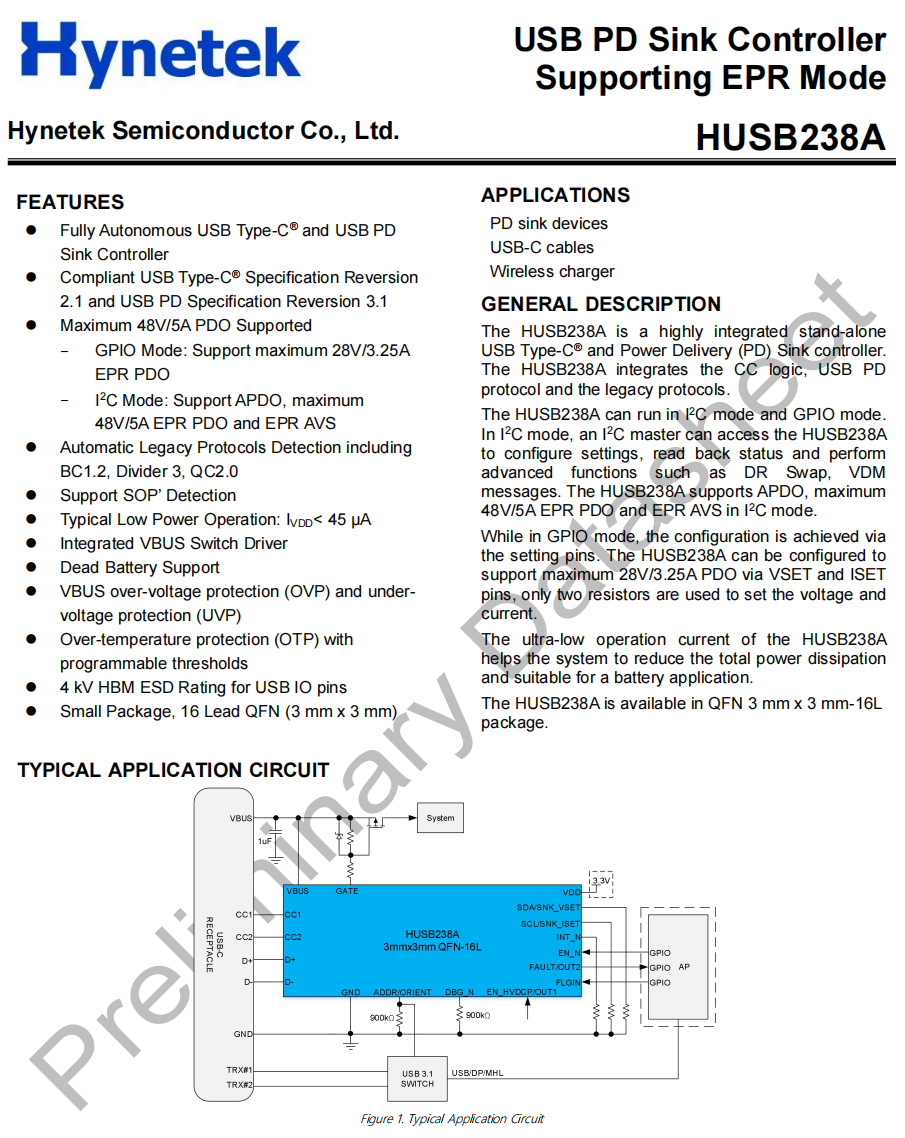
HUSB238A supports two working modes: I²C mode and GPIO mode. In I²C mode, configuration settings, status reading, and advanced functions such as data role swap (DR Swap) and vendor-defined messages (VDM) can be implemented.
In I²C mode, HUSB238A supports up to 48V/5A, including FPDO, PPS, EPR PDO, EPR AVS. In GPIO mode, HUSB238A supports up to 28V/3.25A, including FPDO, EPR PDO. HUSB238A also supports QC2.0 and AFC.
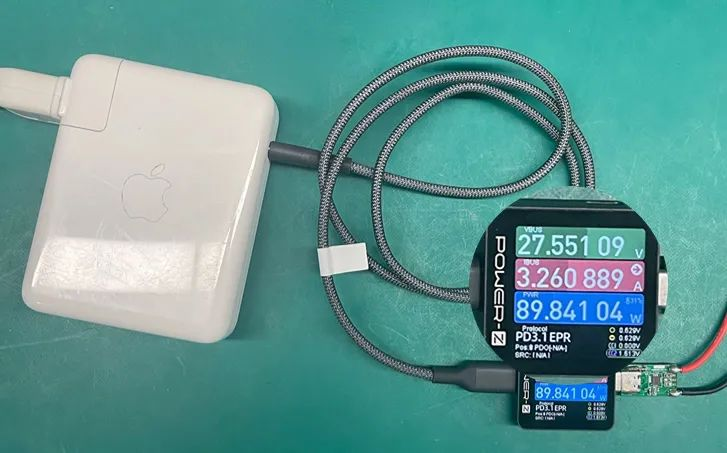
HUSB238A is mainly configured in GPIO mode. It is compact and has a very simple peripheral configuration. It only needs 2 capacitors and 4 resistors to 28V/3.25A.
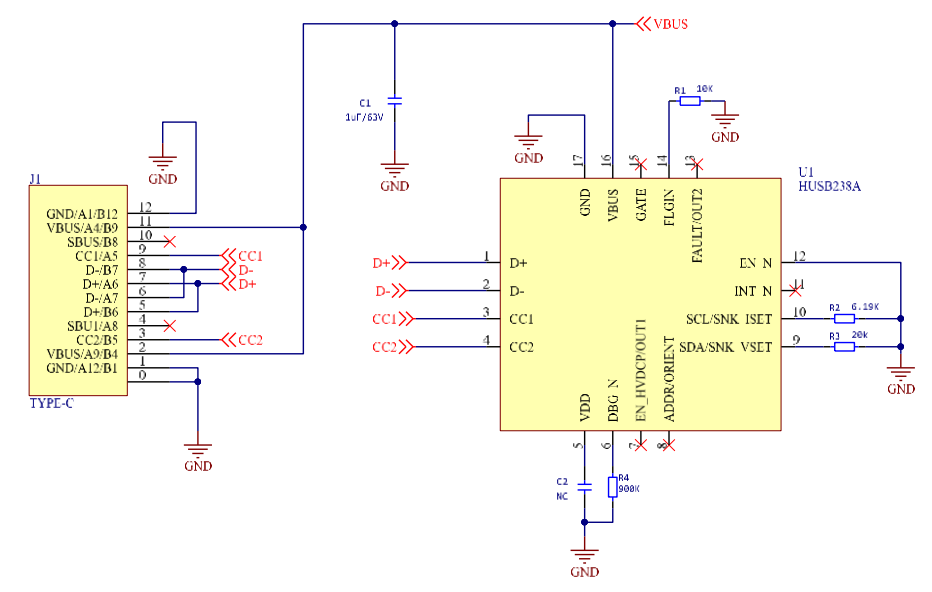
In this mode, the HUSB238A supports adjustable power supply output (APDO), extended power range (EPR) PDO up to 48V/5A, and EPR automatic voltage regulation in I²C mode. In GPIO mode, configuration is done by setting pins.
The HUSB238A can be configured via the VSET and ISET pins to support a PDO output of up to 28V/3.25A. The ultra-low operating current of the HUSB238A helps reduce the total system power consumption and is ideal for battery powering.
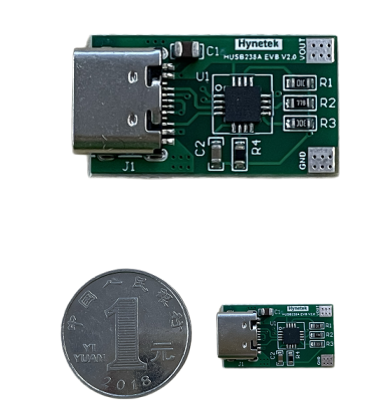
HUSB238A adopts QFN 3 mm x 3 mm-16L package. It is used in IoT devices, wireless chargers, drones, smart speakers, power tools, and other equipment.
Hynetek HUSB239
The HUSB239 is a highly integrated standalone USB-C and PD controller. HUSB239 integrates CC logic, USB PD protocol, and traditional protocol. Users can freely configure HUSB239 as a Sink or DRP. In addition, it supports the identification of debugging accessories and audio accessories.
The HUSB239 can operate in two modes: I²C mode and GPIO mode. In I²C mode, the I²C host can access the HUSB239 to configure settings, read status, and perform advanced functions such as PR Swap, DR Swap, and VDM. In I²C mode, the HUSB239 supports PPS, SPR AVS, max. 48V / 5A EPR PDO, and EPR AVS.
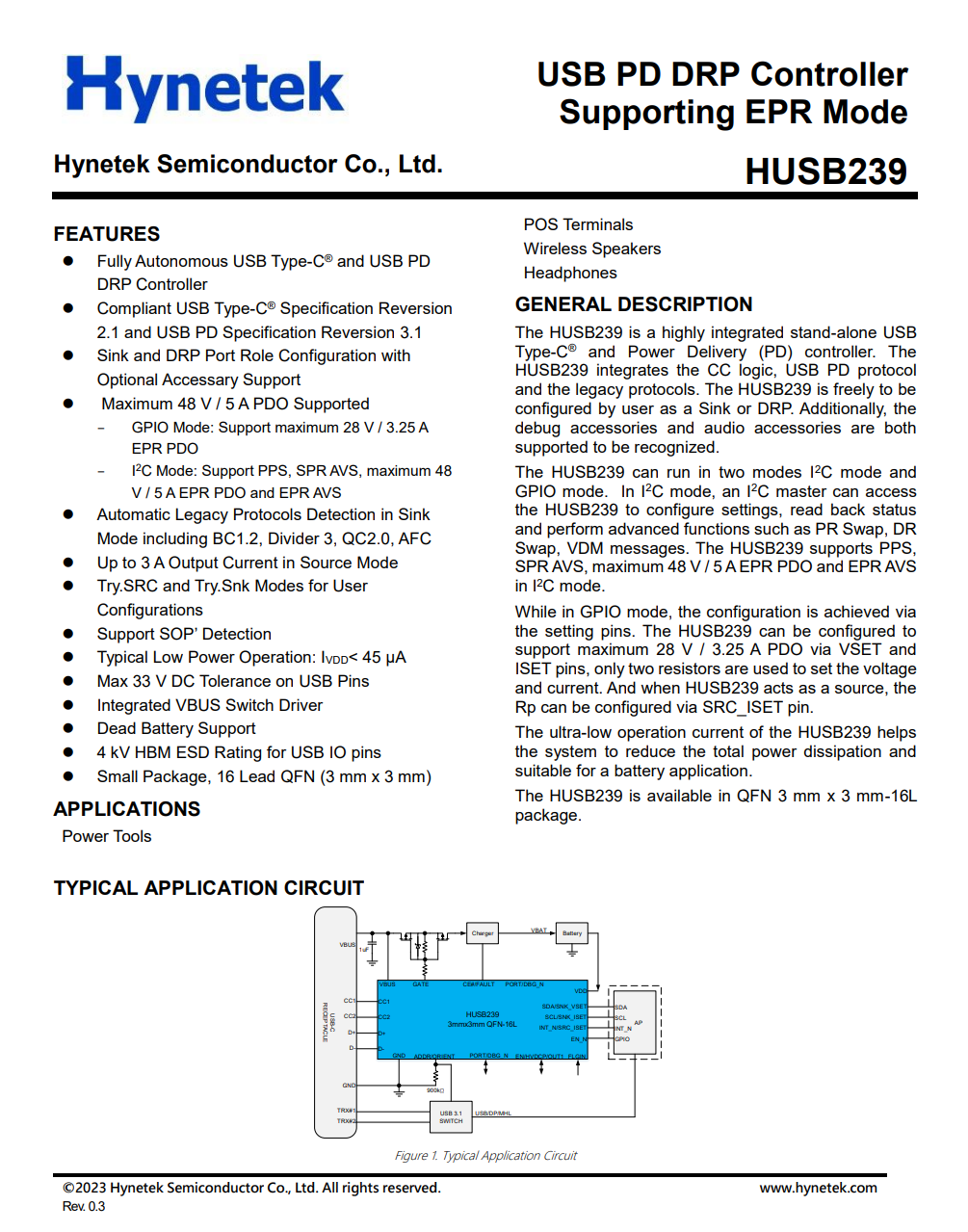
In GPIO mode, configuration is achieved by setting pins. The HUSB239 can be configured to support a maximum of 28V/3.25A PDO via the VSET and ISET pins, using only two resistors to set the voltage and current.
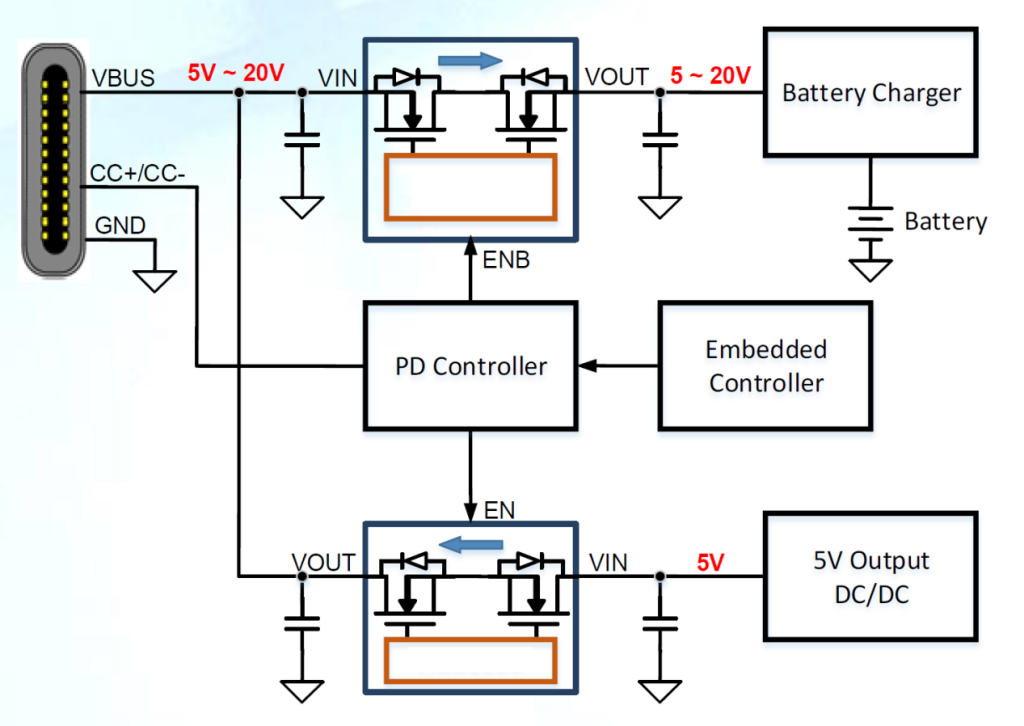
HUSB239通用系统框图
HUSB239 is a PD DRP that can operate independently, supporting PR_SWAP, DR_SWAP, VCONN Role Swap, Discover ID, and Discover SVID.
The ultra-low operating current of HUSB239 helps the system reduce the overall power consumption and is suitable for battery applications. HUSB239 adopts QFN 3mm x 3mm-16L package.
Injoinic
Injoinic IP2756
Injoinic IP2756 is a fast-charging protocol chip that integrates multiple protocols for USB ports. It supports fast charging protocols such as USB PD3.1 and has passed UFCS fast charging certification. It also supports the USB-C protocol, supports the identification of E-Marker cables, and is compatible with BC1.2, APPLE, SAMSUNG and other mobile phone fast charging.
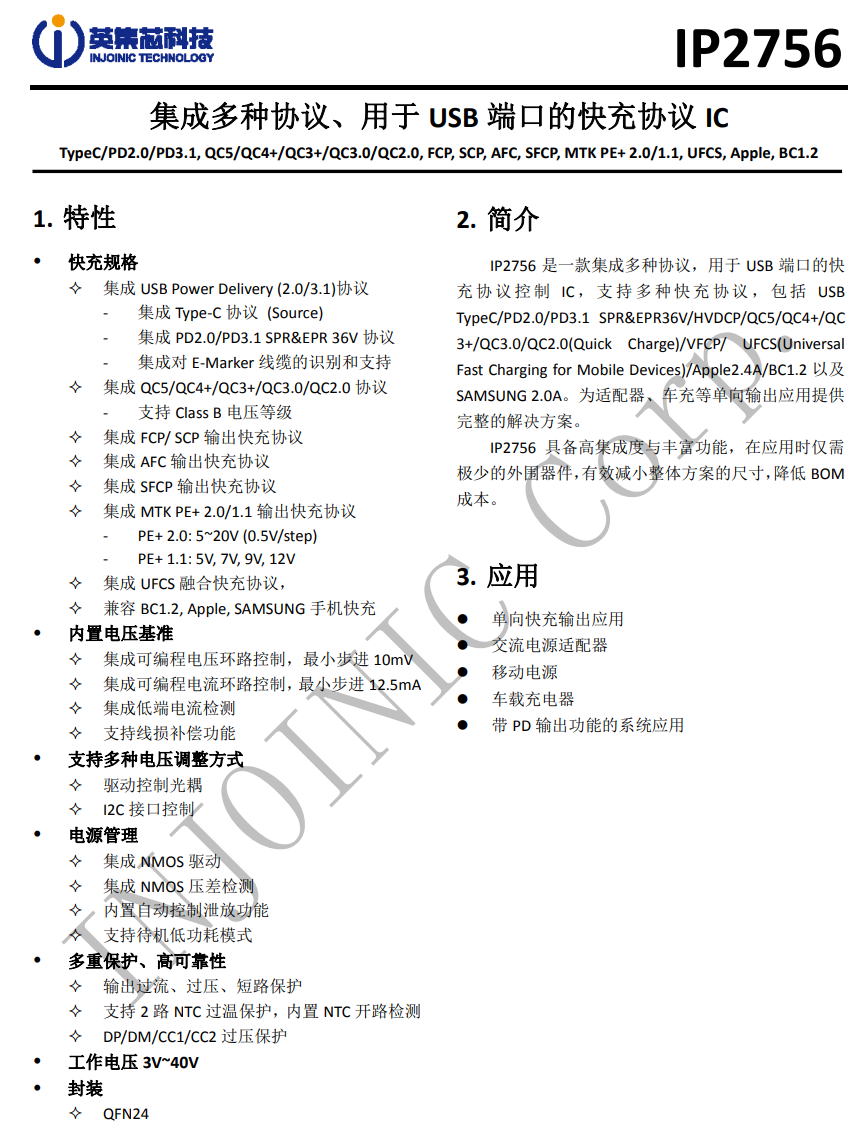
Injoinic IP2756 integrates 10mV programmable voltage loop control and 12.5mA programmable current loop control and integrates low-end current detection and line loss compensation functions. It supports drive control optocoupler and I²C interface control. The power supply integrates NMOS drive and voltage difference detection, built-in automatic control discharge function, and supports standby low power consumption mode.
IP2756 has multiple protection mechanisms such as output overcurrent, overvoltage, short circuit protection, etc., and supports NTC overtemperature protection, built-in NTC open circuit detection, and DP/DM/CC1/CC2 overvoltage protection. It also provides a higher voltage rating, supports EPR 28V~36V streamlined peripheral design, and can support EPR48V and provide greater storage through expansion.
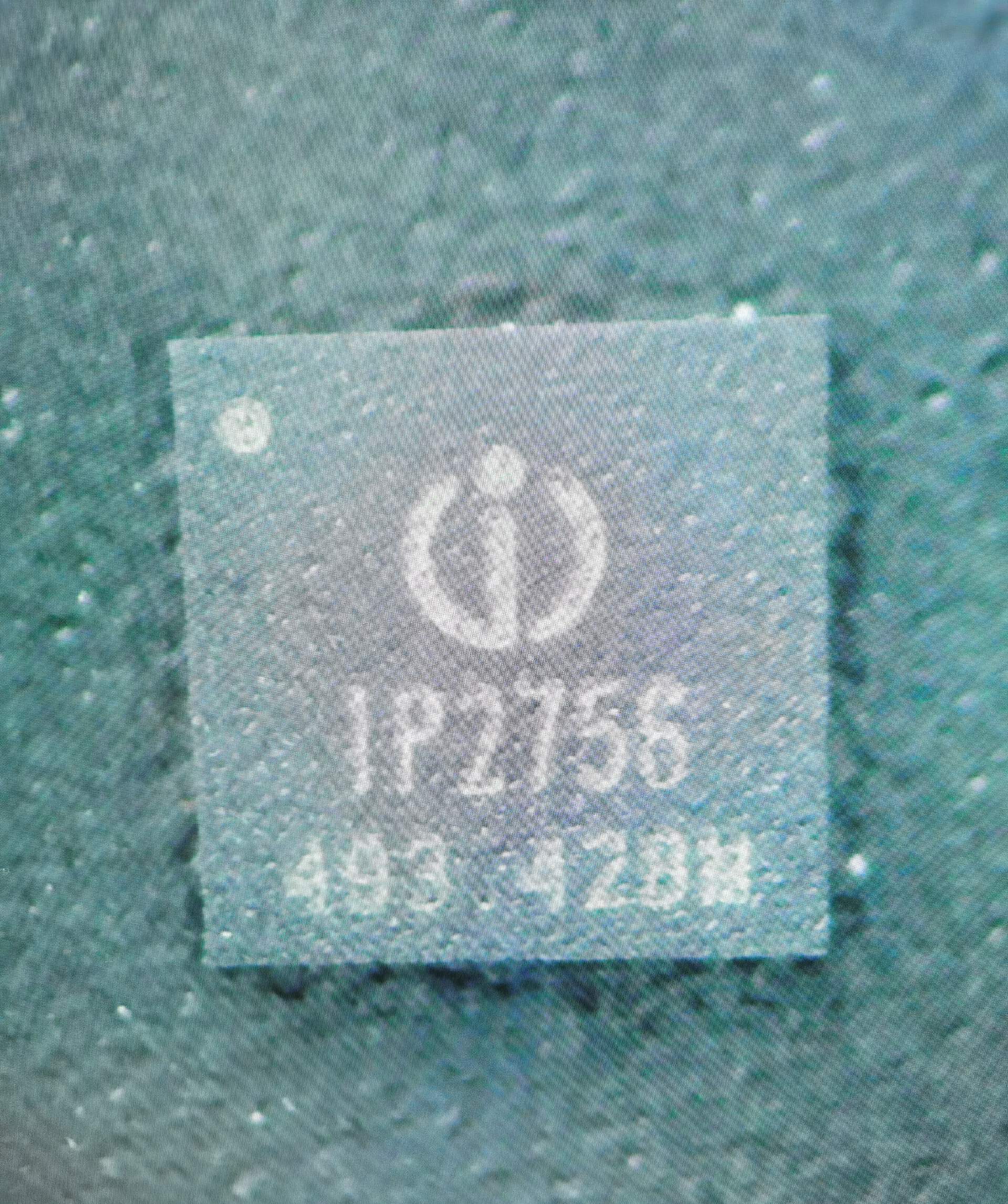
IP2756 adopts QFN24 package. It features high integration and rich functionalities, requiring very few peripheral devices during the application, effectively reducing BOM costs. It can be widely used in charging adapters, power supplies, car chargers, and system applications with PD output function.
Legendary
Legendary LDR6020
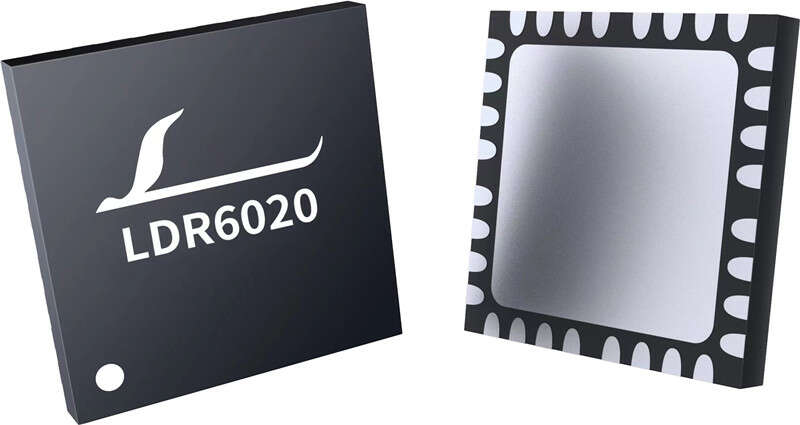
The LDR6020 is a 16-bit RISC MCU equipped with three sets of six-channel DRP USB-C and PD communication protocol modules, as well as a USB2.0 Device module. With USB PD3.1 communication capability, it can handle 262-byte non-collapsed PD3.1 long data packet communications. The chip supports online firmware upgrades through CC, UART, I2C, and USB2.0 modes.
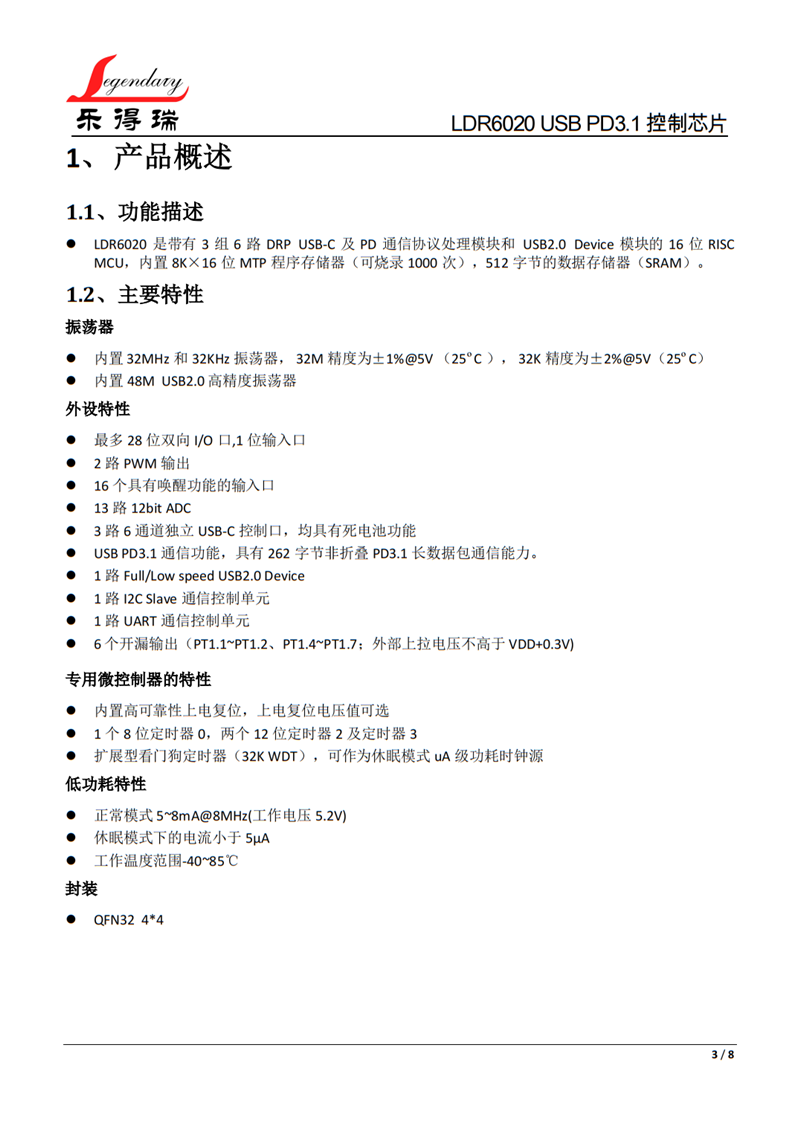
Furthermore, it boasts 13 ADC channels, 28 dual-directional I/O ports, 1 input port, and 2 PWM channels, facilitating customized designs. In the future, an embedded cloud IDE development system will also be introduced. It adopts QFN-32 4x4 package.
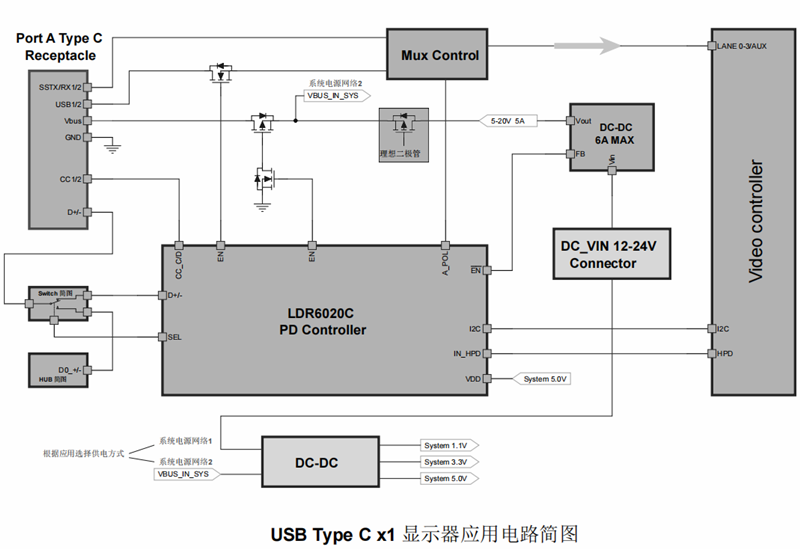
This controller finds extensive applications, such as in USB-C multifunctional adapters, USB-C monitors, and USB-C power banks. It includes an embedded I2C Slave and a UART communication control unit for intercommunication with other master control chips.
On-Bright
On-Bright OB2627
On-Bright OB2627 is a secondary-side constant voltage and constant current controller chip with a built-in MCU to handle multiple fast charging protocols. It has two built-in operational amplifiers for voltage-loop and current-loop regulation and can make programmable voltage references according to the charging protocol. It supports PD3.1 EPR 48V and has passed USB-IF certification, supporting a maximum output power of 240W, and the built-in high-gain current detection amplifier can minimize the offset, thereby reducing the power loss of the detection resistor.
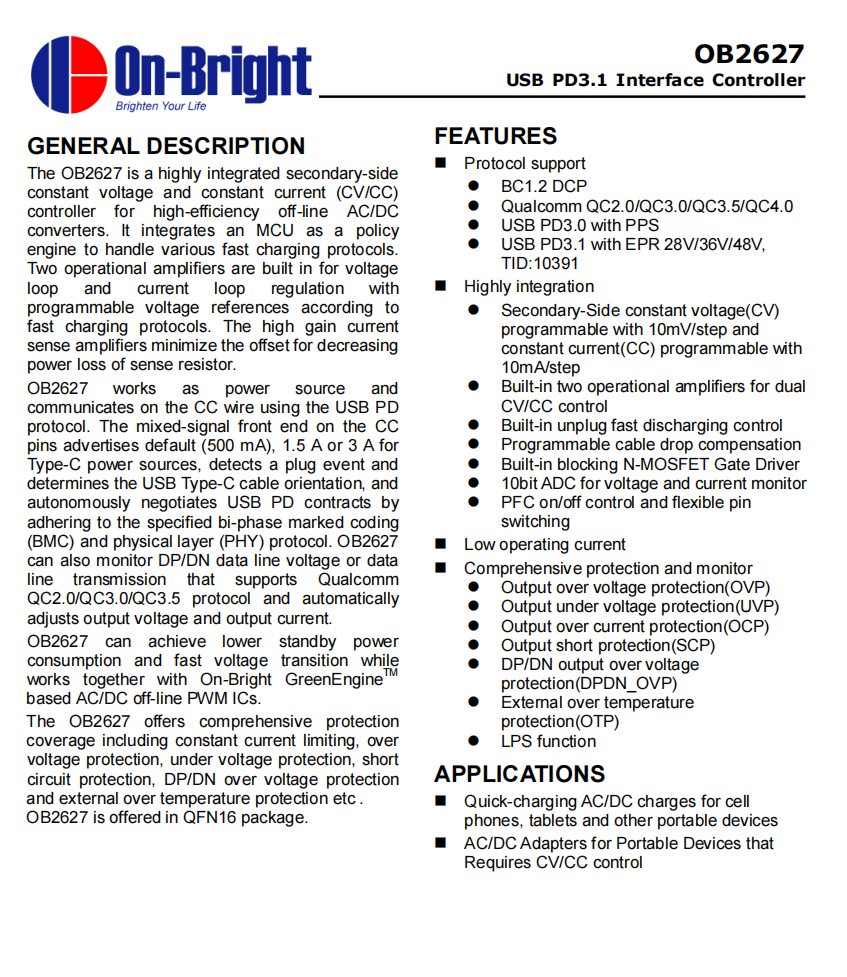
OB2627 communicates on the CC line via the USB PD protocol. It can monitor DP/DN data line voltage or data transmission, support QC2.0/QC3.0/QC3.5 protocols, and automatically adjust output voltage and output current.
OB2627 provides comprehensive protection, including constant current limiting, overvoltage protection, under-voltage protection, short circuit protection, DP/DN overvoltage protection, and external over-temperature protection. It adopts QFN16 package.
RICHTEK
RICHTEK RT7209
RICHTEK RT7209 is a highly integrated programmable USB PD controller that supports USB PD3.1 SPR and EPR 48V specifications and has passed USB-IF PD3.1 certification, certification TID: 11022, supports 3V to 55V operating voltage, and has a built-in MCU. It has 16kB of OTP-ROM and 2kB of SRAM, and a built-in feedback compensation mechanism that not only reduces external components but also enhances transient response.
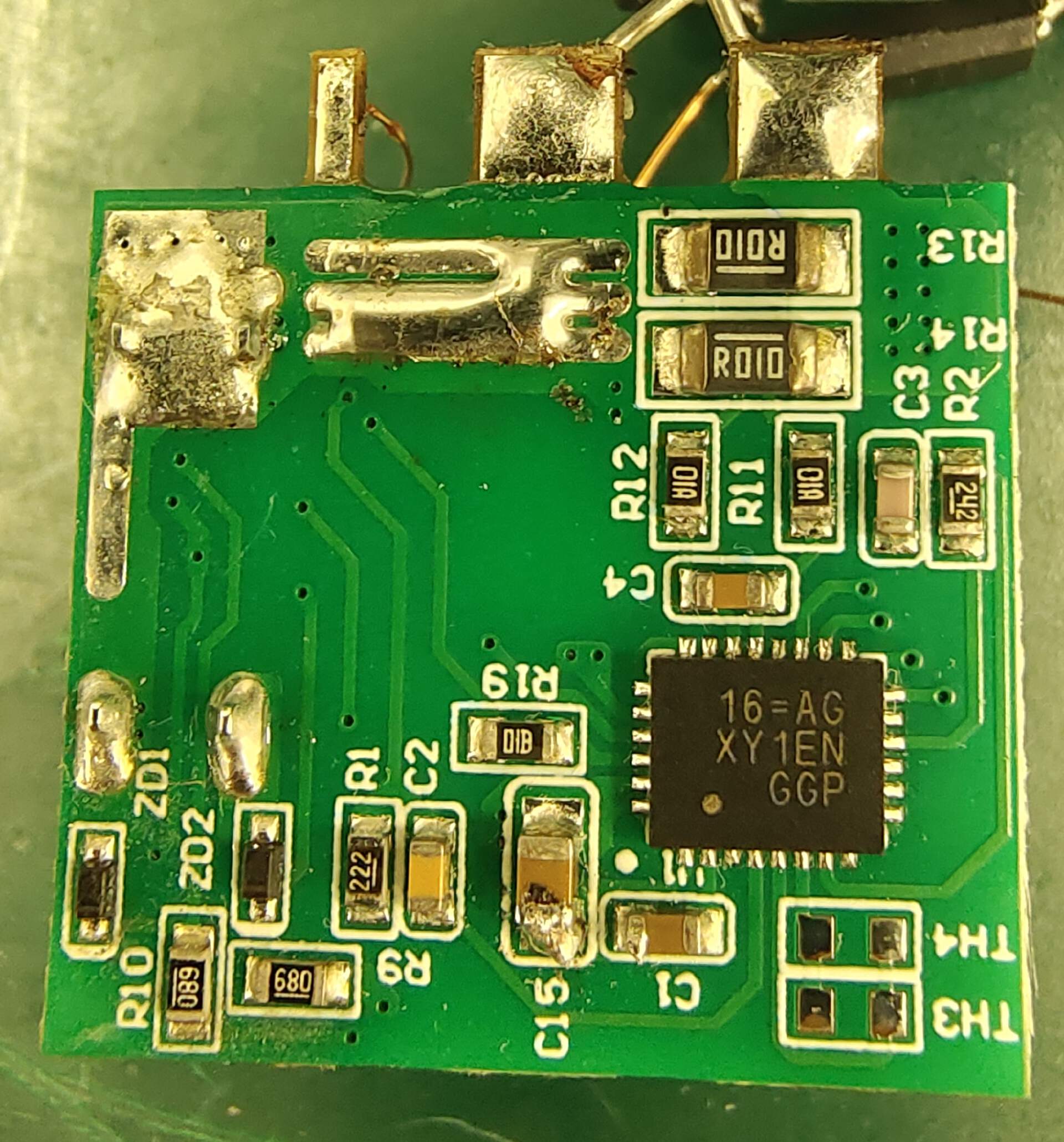
RT7209 supports multiple fast charging protocols such as PD3.1, PPS, and UFCS. It has a built-in shunt regulator, which makes it more stable and reliable when providing constant voltage or constant current output. The built-in feedback compensation mechanism ensures the stability of the entire system.
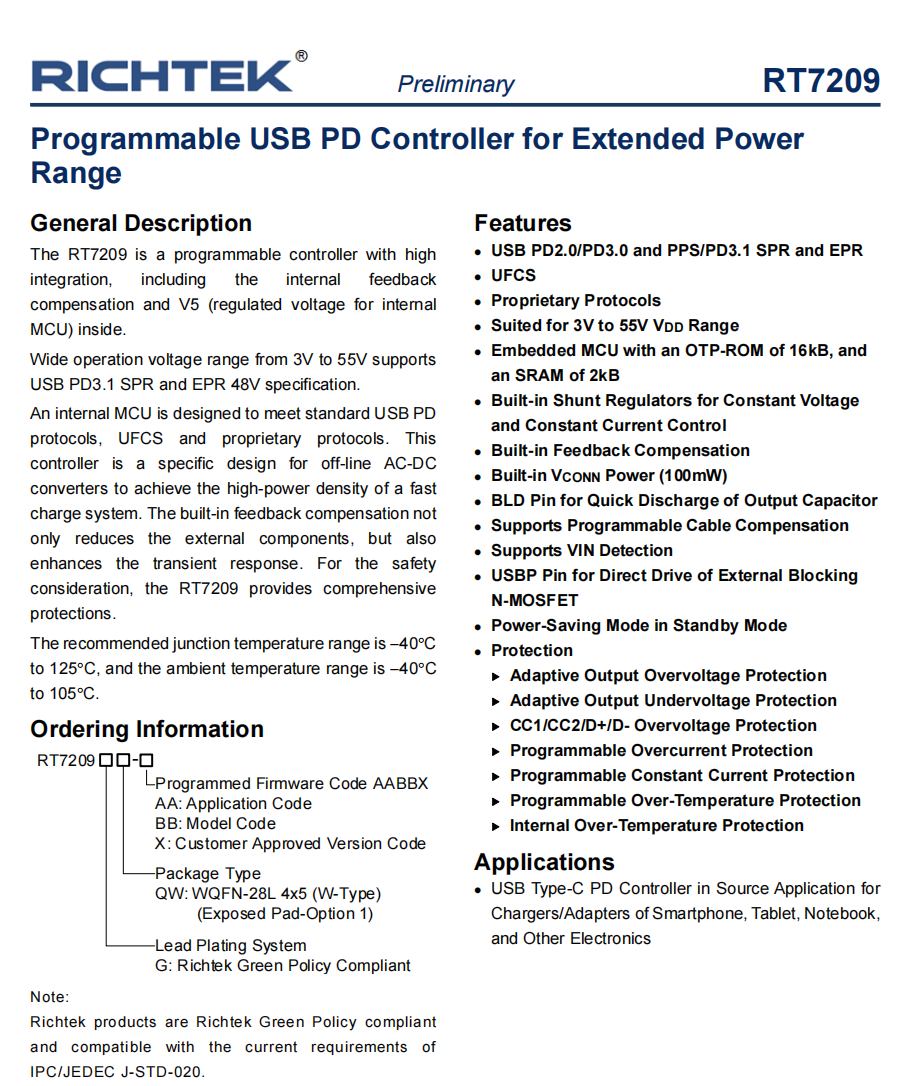
The RT7209 also has a VIN pin detection function that can monitor the input voltage status and make corresponding control decisions accordingly to ensure the stable operation of the device. The BLD pin can be used to quickly discharge the output capacitor, helping to shorten the charge cycle and increase the charge rate. The USBP pin provides the ability to directly drive an external blocking N-MOSFET, further enhancing the controllability and safety of the system.
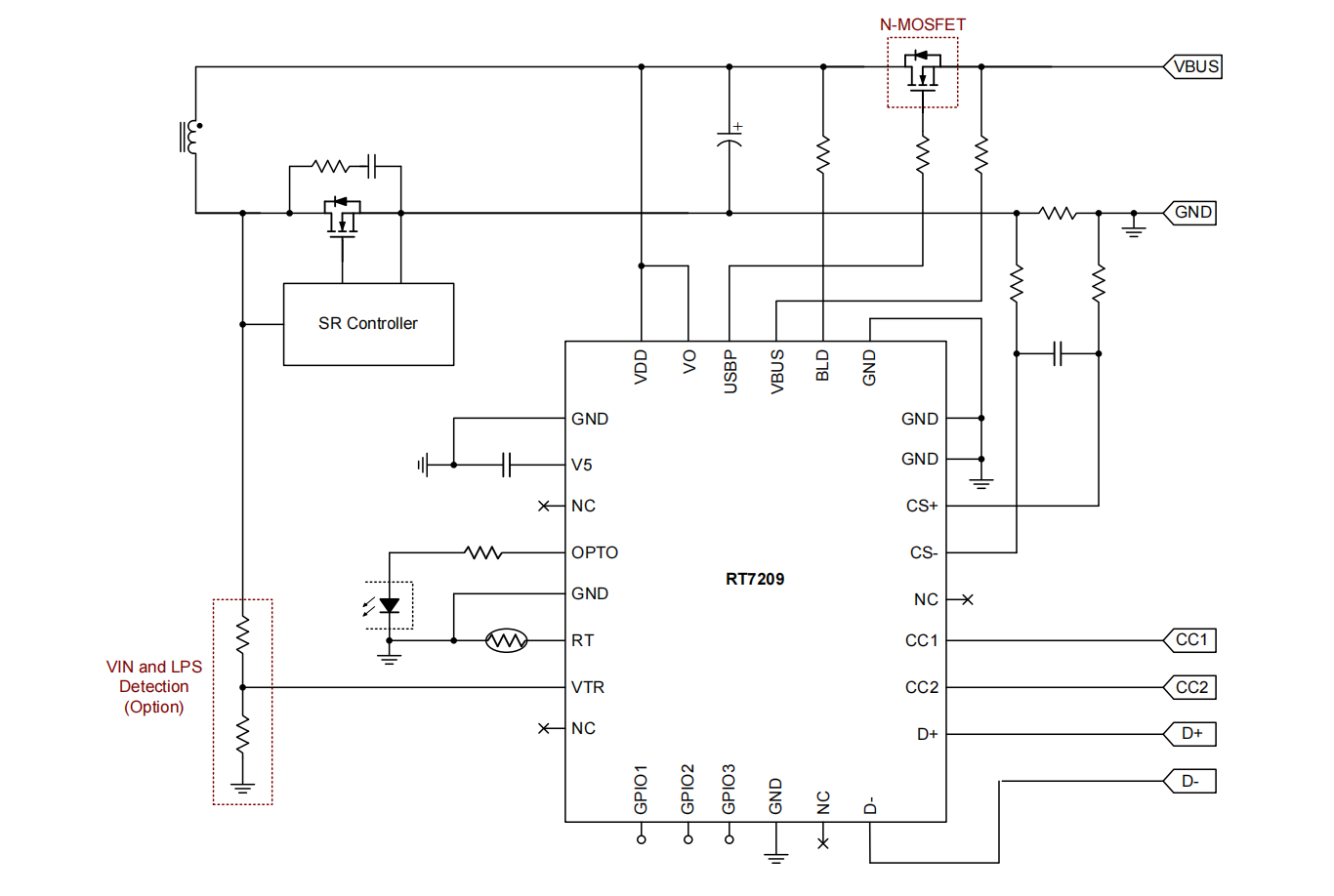
RT7209 supports programmable over-current protection, constant current protection, over-temperature protection, adaptive output over-voltage protection, and output under-voltage protection. The junction temperature range is −40°C to 125°C, and the operating ambient temperature range is −40°C to 105°C. It supports CC1/CC2/D+/D- overvoltage protection and internal over-temperature protection. It adopts WQFN-28L 4x5 package.
UNICMICRO
UNICMICRO UM3506
The Unicmicro UM3506-BPQH is a fast charging controller that supports PD3.1 and boasts full SRC/SNK/DRP support capability. It supports SPR, EPR (PD3.1) mode, and PD message chunk mode. The chip comes with a high-voltage LDO and supports 3.3-24V power supply.
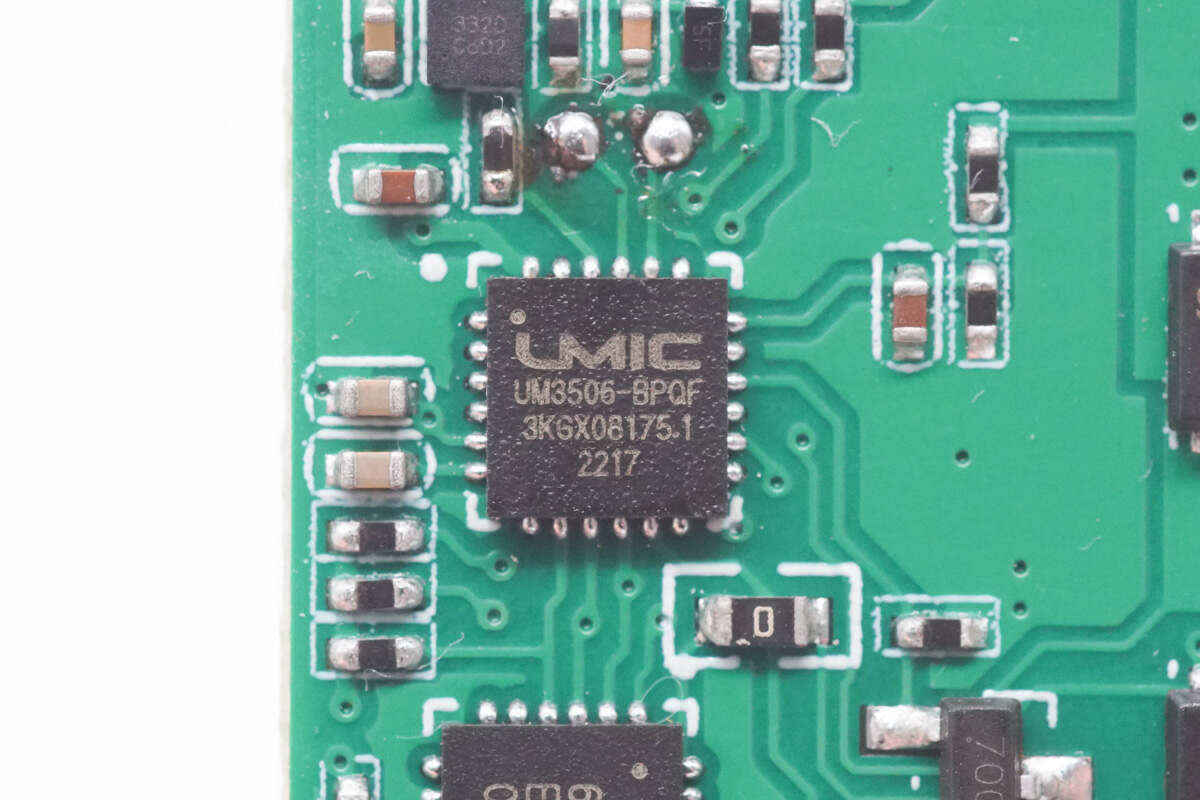
Featuring 2 pairs of DP DM pins, it supports BC, QC, and other protocols, allowing for flexible expansion.
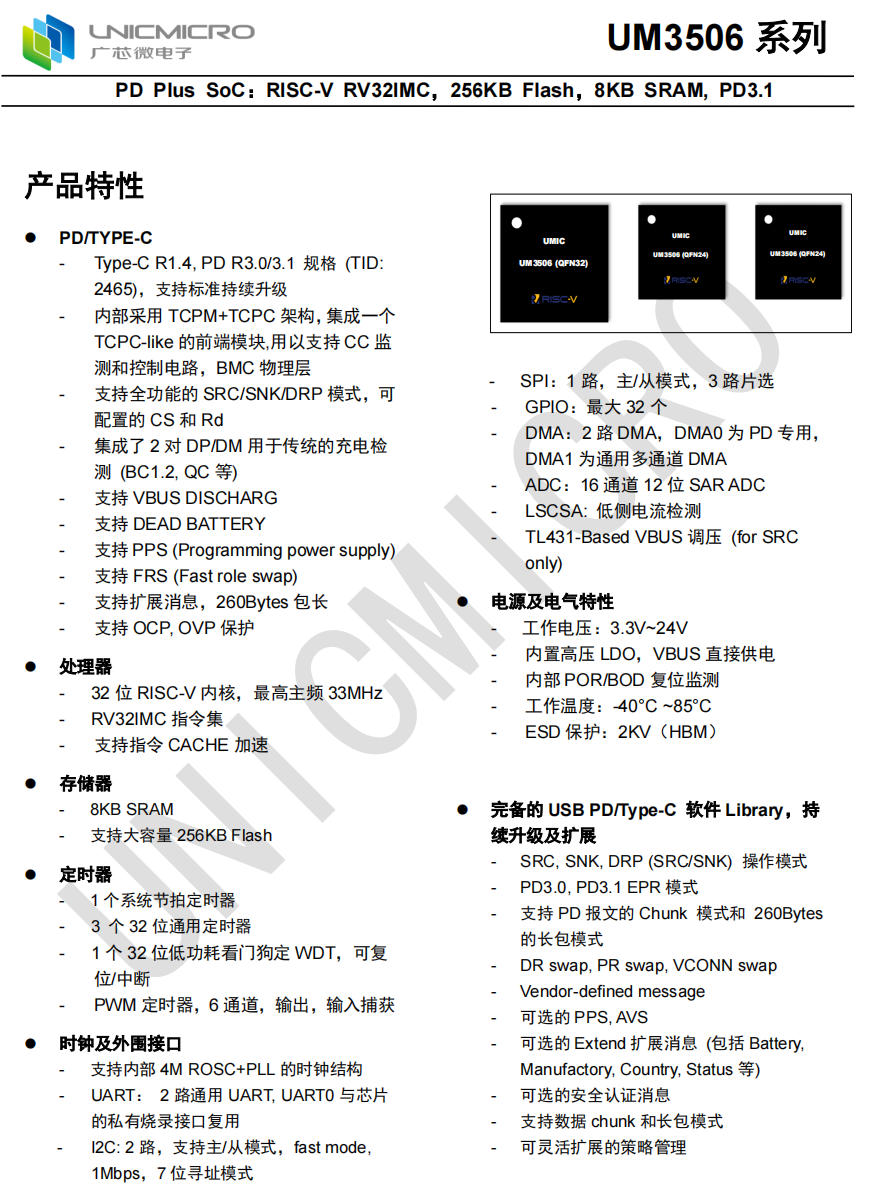
芯片内置高性能32位RISC-V内核,主频最高为33MHz,内置8KB SRAM和256KB FLASH,内置16通道12位ADC用以电压和电流采样,支持3.3-24V工作电压范围,使用QFN24封装。
The chip is equipped with a high-performance 32-bit RISC-V core, with a maximum clock frequency of 33MHz, 8KB SRAM, and 256KB FLASH. It also has a built-in 16-channel 12-bit ADC for voltage and current sampling, supporting a 3.3-24V operating voltage range. The chip adopts QFN24 package.
VIA Labs
VIA Labs VL108
VIA VL108 is a highly integrated single-chip DisplayPort Alt mode and PD 3.1 controller chip specifically designed for USB-C devices, ideal for use in USB-C multifunctional docking stations with charging capabilities. The VL108 incorporates USB-C Charging UFP, enabling video output functionality through DP Alt mode or USB4 DP tunneling, while also providing charging to the connected PD host upon detecting external power. It integrates two USB-C DRP DFP ports, capable of charging a PD host or connecting to USB-C devices for data transmission.
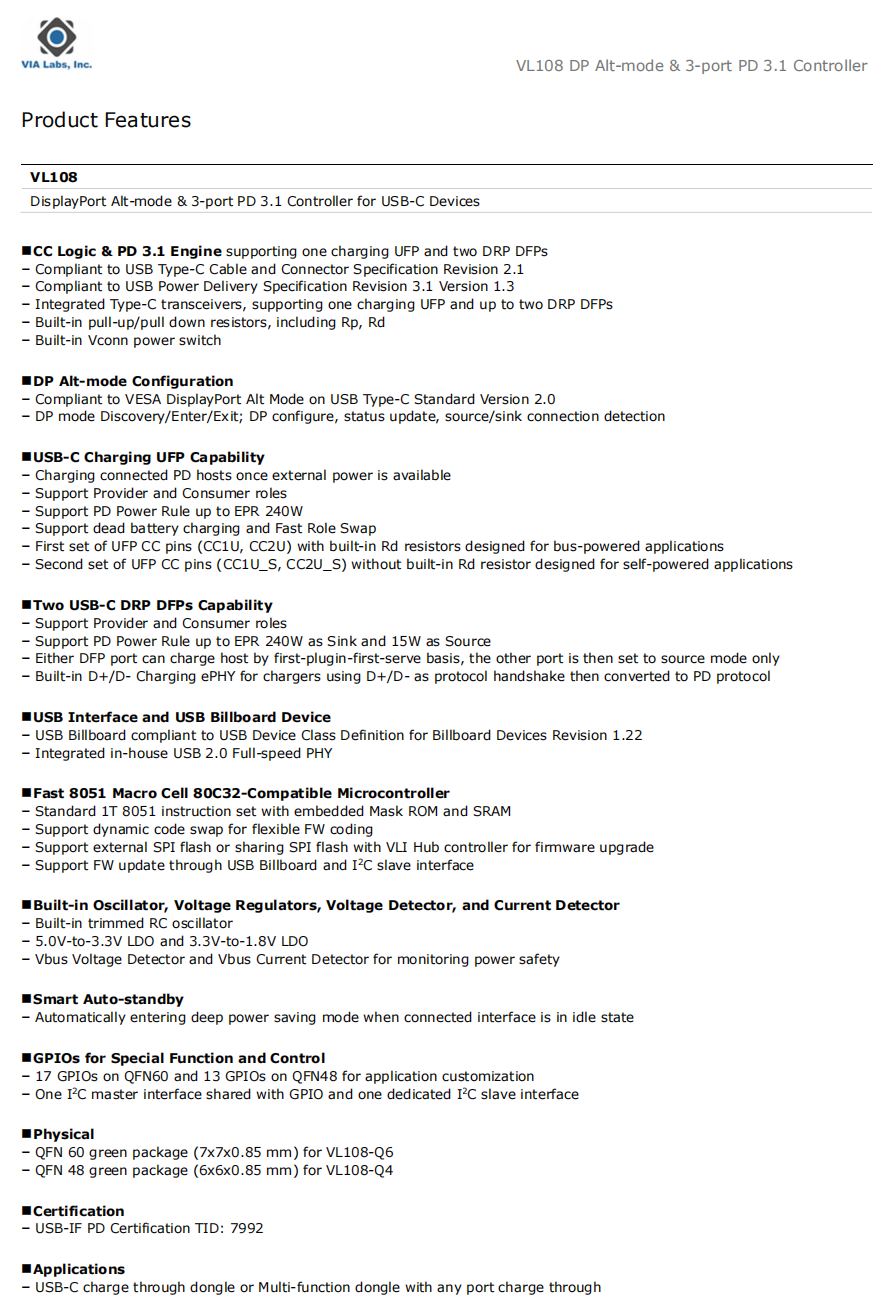
Both UFP and the two DFP ports support the latest PD3.1 EPR specification, capable of delivering power output of 48V 5A (240W). Additionally, the two DRP DFP ports integrate D+/D- Charging ePHY, supporting protocol handshaking using D+/D - and then transitioning to the PD protocol for power output via UFP.
The device policy manager within the VL108 negotiates power rules between DFP and UFP, enabling power charging. Furthermore, the VL108 features USB Billboard functionality to meet the "VESA DP Alt mode over USB Type-C" specification. It automatically enters a deep power-saving mode when the interface is idle, making it highly suitable for smartphone accessories.
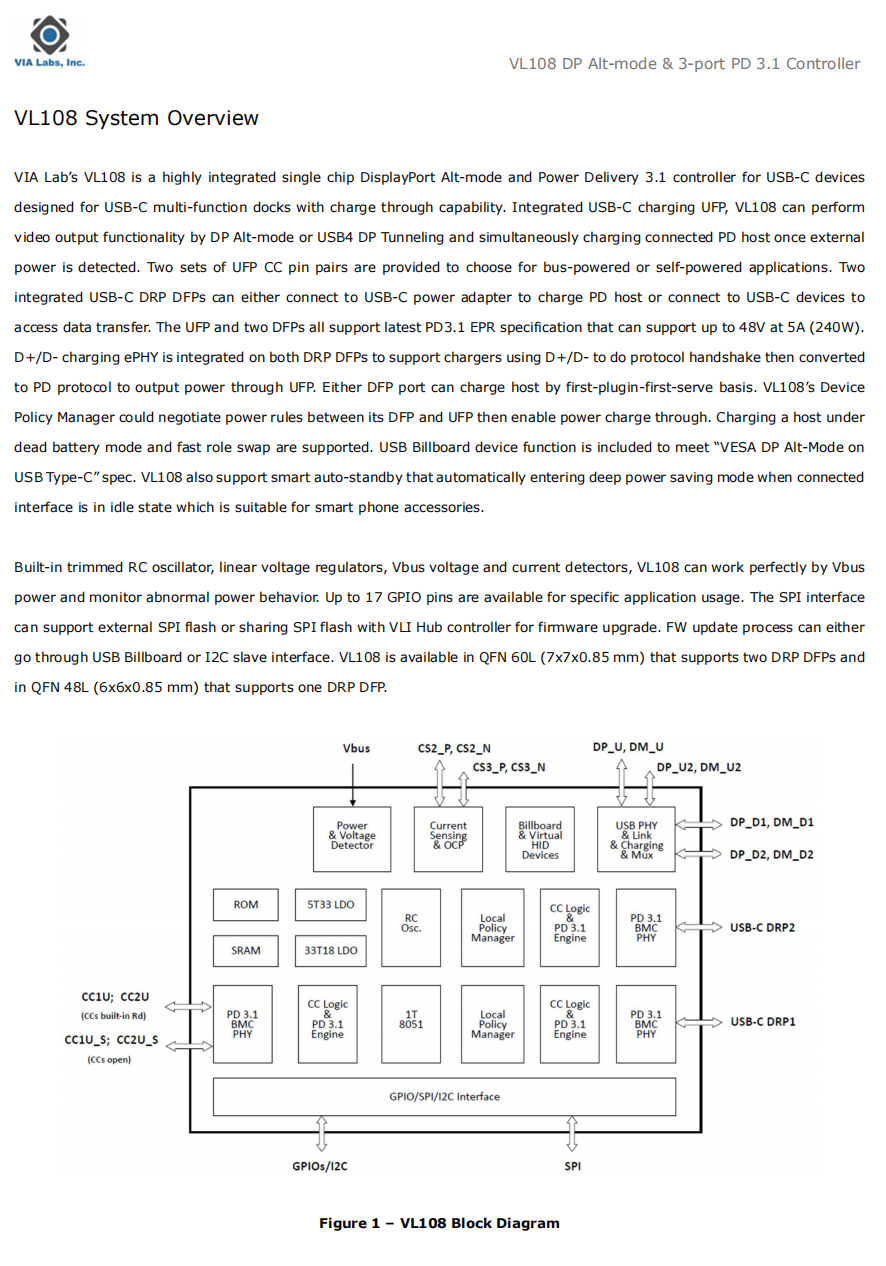
The VL108 incorporates RC oscillators, linear voltage regulators, Vbus voltage, and current detectors to ensure stable operation via the Vbus power and monitor abnormal power behaviors. Additionally, it provides up to 17 GPIO pins for specific applications. It's available in two package options: QFN 60L (7x7x0.85 mm), supporting two DRP DFP ports, and QFN 48L (6x6x0.85 mm), supporting one DRP DFP port.
Summary of ChargerLAB
Although the maximum power of the PD protocol on smart devices is only around 140W, there is still a long way to go before reaching 240W. However, there are already power tools that can reach power of 240W. This type of chip is not only widely in demand in industrial equipment, power tools, and other fields but also with the development of industrial automation and the times, the demand for 48V high-voltage application chips will also increase accordingly. This time we counted eight 48V high-voltage chips that support PD 3.1 240W. The launch of these chips will promote the further development of the USB PD standard and provide a more reliable solution for charging higher-power devices.
Related Articles:
1. Twenty LLC Controllers for High-Power E-Bike Chargers: ChargerLAB Analysis
2. Eleven AHB Controllers for High-Power E-Bike Chargers: ChargerLAB Analysis
3.Twenty Five PD3.1 Protocol Chips and Their Manufacturers: A ChargerLAB Analysis

